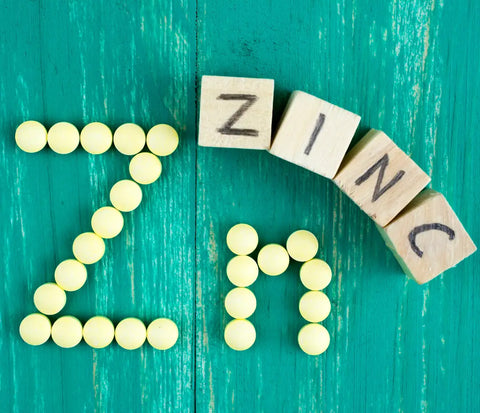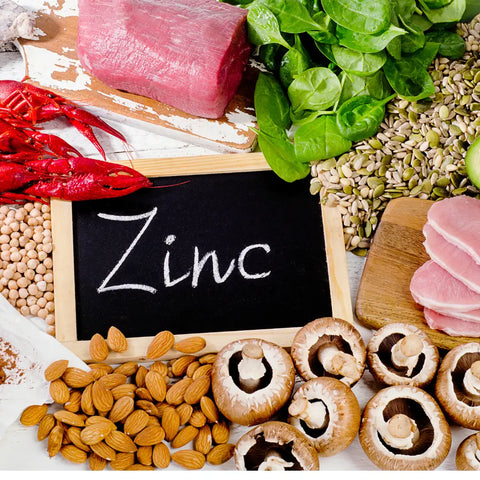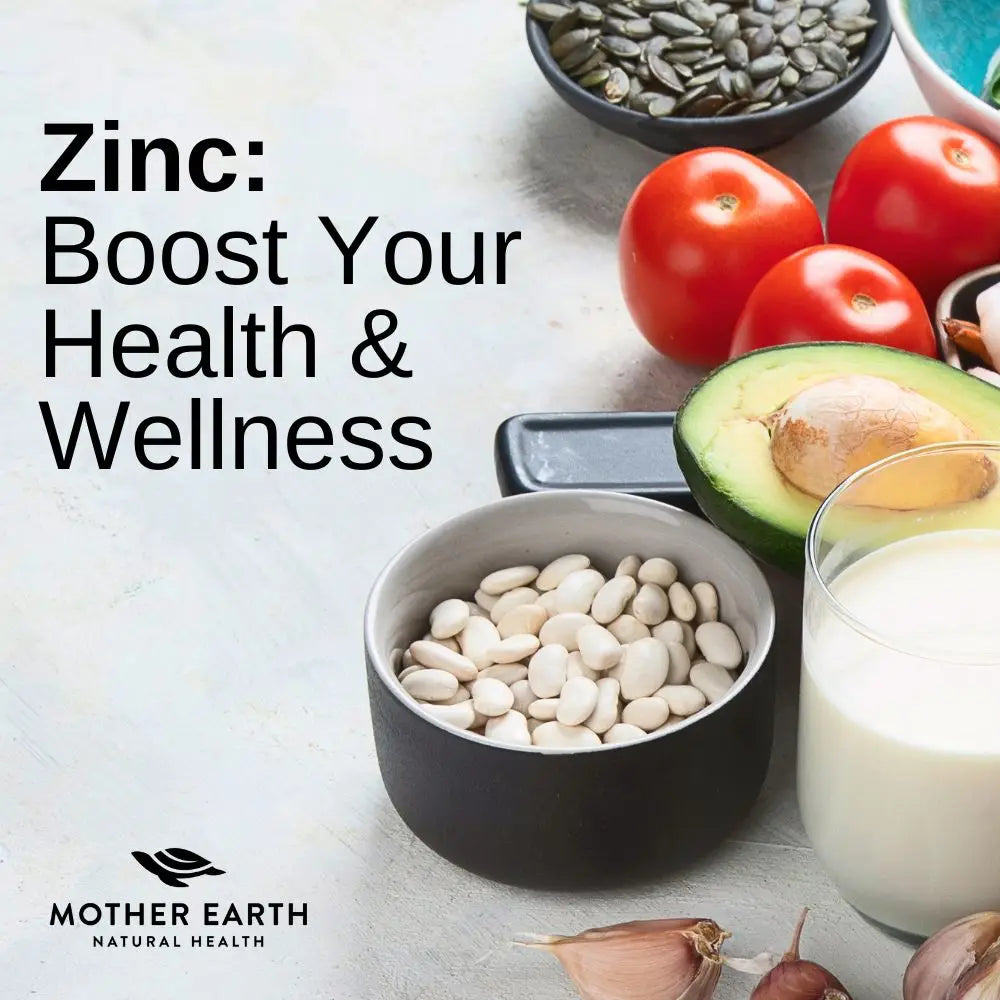
Zinc is an essential mineral that plays a vital role in maintaining good health and wellness. It is involved in numerous bodily functions, including immune system support, wound healing, DNA synthesis, and cell division. Despite its importance, many people are not aware of the benefits of zinc or how to incorporate it into their daily lives. In this comprehensive guide, we will explore the various benefits of zinc, ways to identify zinc deficiency, recommended daily intake, natural food sources, easy ways to include zinc in your everyday routine, the effectiveness of zinc supplements, and potential side effects and precautions. By the end of this article, you will have a thorough understanding of zinc and its incredible potential in improving your overall well-being.
The Importance of Zinc for Health and Wellness
Zinc is a trace element that is necessary for the proper functioning of the body. It is involved in over 300 enzymatic reactions and is essential for the activity of more than 100 different enzymes. One of the key roles of zinc is its contribution to a healthy immune system. It helps in the production of immune cells and antibodies, which are crucial for fighting off infections and diseases. Additionally, zinc is essential for maintaining optimal hormone levels, promoting healthy digestion, supporting brain function, and aiding in the repair and growth of body tissues.
Benefits of Zinc for the Body
Zinc offers a wide range of benefits for the body. Firstly, it boosts the immune system and helps reduce the duration and severity of the common cold. It has been found to possess antiviral properties that can inhibit the replication of viruses. Furthermore, zinc is known for its wound-healing properties. It promotes the production of collagen, a protein that is essential for the formation of new skin cells and tissues. This makes zinc particularly beneficial for individuals with skin conditions such as acne, eczema, and psoriasis. Moreover, zinc plays a crucial role in maintaining healthy vision, supporting fertility and reproductive health, and improving cognitive function. It has been shown to enhance memory, attention span, and overall cognitive performance.
Zinc Deficiency and its Symptoms
Zinc deficiency is a common problem, especially in developing countries. It can also occur in individuals with certain health conditions or those following restrictive diets. The symptoms of zinc deficiency can vary from mild to severe and may include impaired growth and development, delayed wound healing, frequent infections, hair loss, loss of appetite, and changes in taste and smell. In children, zinc deficiency can lead to stunted growth and developmental delays. If you suspect you may be deficient in zinc, it is important to consult with a healthcare professional who can assess your zinc levels through blood tests and recommend appropriate supplementation or dietary changes.
Daily Recommended Intake of Zinc
The daily recommended intake of zinc varies depending on age, sex, and life stage. For most adults, the recommended dietary allowance (RDA) is around 8-11 milligrams for women and 11-15 milligrams for men. Pregnant and lactating women may require higher amounts of zinc to support the growth and development of their babies. It is important to note that excessive zinc intake can be harmful, so it is essential to follow the recommended guidelines. If you are unsure about your zinc requirements, it is best to consult with a healthcare professional who can provide personalized advice based on your individual needs.
Natural Food Sources of Zinc

One of the easiest ways to ensure an adequate intake of zinc is through a balanced diet that includes zinc-rich foods. Some of the best natural sources of zinc include oysters, beef, lamb, pork, chicken, pumpkin seeds, sesame seeds, lentils, chickpeas, spinach, mushrooms, and dark chocolate. Incorporating these foods into your meals can help increase your zinc intake and provide you with the necessary nutrients for optimal health. It is important to note that certain factors, such as food processing and cooking methods, can affect the zinc content of these foods. For example, prolonged cooking or soaking may lead to a loss of zinc. Therefore, it is advisable to choose fresh, unprocessed foods and opt for cooking methods that preserve the nutrient content.
Easy Ways to Incorporate Zinc into Your Everyday Life
Incorporating zinc into your everyday life doesn't have to be complicated. Here are some simple yet effective ways to ensure you are getting enough zinc:
- Add zinc-rich foods to your meals: As mentioned earlier, including foods like oysters, beef, pumpkin seeds, and spinach in your meals can boost your zinc intake.
- Snack on zinc-rich foods: Keep a stash of zinc-rich snacks like sesame seeds, chickpeas, and dark chocolate for a quick and nutritious pick-me-up.
- Use zinc-fortified products: Look for products that are fortified with zinc, such as breakfast cereals and nutritional bars. However, be sure to check the labels and choose products with minimal added sugars and artificial ingredients.
- Consider zinc supplements: If you are unable to meet your daily zinc requirements through diet alone, you may consider taking zinc supplements. It is important to consult with a healthcare professional before starting any supplementation to determine the appropriate dosage and ensure it is safe for you.
Zinc Supplements and Their Effectiveness
Zinc supplements are widely available and can be an effective way to meet your daily zinc needs. They come in various forms, including zinc gluconate, zinc citrate, and zinc sulfate. However, it is important to note that not all supplements are created equal. The effectiveness of a zinc supplement depends on factors such as the form of zinc used, the dosage, and the presence of other nutrients that enhance absorption. It is advisable to choose supplements from reputable brands and opt for forms that have been clinically tested for bioavailability. Additionally, it is crucial to follow the recommended dosage and consult with a healthcare professional if you experience any adverse effects.
Potential Side Effects and Precautions of Zinc Consumption
While zinc is generally safe when consumed in recommended amounts, excessive intake can lead to adverse effects. Symptoms of zinc toxicity may include nausea, vomiting, diarrhea, abdominal cramps, and headaches. Long-term excessive zinc intake can also impair copper absorption and lead to copper deficiency. It is important to follow the recommended dosage and consult with a healthcare professional if you are unsure about your zinc requirements or experience any adverse effects while taking zinc supplements.
Conclusion: Embracing the Power of Zinc for a Healthier Life
Zinc is a powerful mineral that plays a crucial role in maintaining optimal health and wellness. From supporting a healthy immune system to promoting wound healing and enhancing cognitive function, the benefits of zinc are numerous. By incorporating zinc-rich foods into your meals, considering zinc supplements when necessary, and following the recommended guidelines, you can harness the power of zinc to boost your overall well-being. Remember to consult with a healthcare professional for personalized advice and enjoy the benefits of zinc as you embark on your journey towards a healthier life.
CTA: Take charge of your health and start incorporating zinc into your everyday routine. Consult with a healthcare professional to determine your zinc requirements and explore the various ways you can benefit from this incredible mineral.

